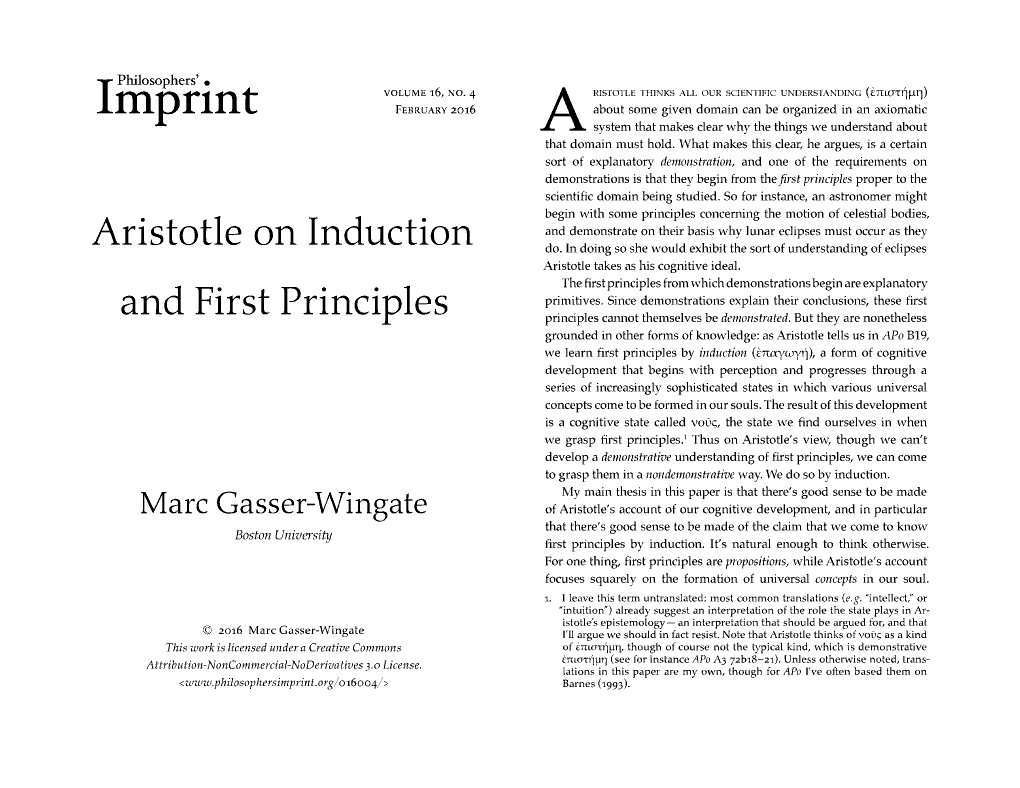Aristotle on Induction and First Principles
Skip other details (including permanent urls, DOI, citation information): This work is licensed under a Creative Commons Attribution-NonCommercial-NoDerivatives 3.0 License. Please contact [email protected] to use this work in a way not covered by the license.
For more information, read Michigan Publishing's access and usage policy.
Abstract
Aristotle's cognitive ideal is a form of understanding that requires a sophisticated grasp of scientific first principles. At the end of the Analytics, Aristotle tells us that we learn these principles by induction (epagôgê). But on the whole, commentators have found this an implausible claim: induction seems far too basic a process to yield the sort of knowledge Aristotle's account requires. In this paper I argue that this criticism is misguided. I defend a broader reading of Aristotelian induction, on which there's good sense to be made of the claim that we come to grasp first principles inductively, and show that this reading is a natural one given Aristotle's broader views on scientific learning.



